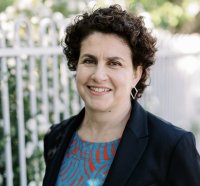Clare Corbould
Historian Clare Corbould is Associate Head of School (Research) in the School of Humanities and Social Sciences at Deakin University. She is the author of Becoming African Americans (Harvard, 2009) and co-editor of Remembering the Revolution (Massachusetts, 2013). With Michael McDonnell she is writing a history of African Americans and the legacy of the American Revolution. For more information, see her staff webpage: https://experts.deakin.edu.au/43359-Clare-Corbould.
When I taught African American history at the University of Sydney, students read the words of Booker T. Washington, Ida B. Wells, Marcus Garvey, and Martin Luther King Jr. They discussed the relative merits of each leader’s strategies. In every class – mostly white students, including some migrants and children of migrants – a majority favoured Washington over the three more militant altern ... (read more)
‘The past is a foreign country; they do things differently there,’ said historian David Lowenthal in 1985, adopting L.P. Hartley’s famous opening line from The Go-Between. Most historians agree, proceeding from the premise that the past is remote and in need of discovery, and that there is no automatic link between people in the present and those in the past. It is a supposition in complete ... (read more)

